The President of the National Union of Journalists of Ukraine Sergiy Tomilenko is an honorary guest at the Congress of the Danish Union of Journalists (Dansk Journalistforbund) in Nyborg. Over 300 Congress delegates gave a standing ovation to the Ukrainian colleague as a sign of solidarity with media workers from Ukraine.
“Dear Sergiy Tomilenko. You are my dear friend and colleague from the National Union of Journalists of Ukraine. We have one clear message for you and your colleagues from this congress: We are behind you and we will continuously support you. I know it is difficult for you to sit here while worrying about your family and friends in Kyiv, which is under attack. Thank you for coming and for your important and tireless work,” said Danish Union of Journalists President Tine Johansen in her speech.
In his address, Sergiy Tomilenko spoke about the extraordinary conditions under which Ukrainian journalists work. He shared the story of Anatoliy Bilonozhko, editor of “Mykolaiv News,” whose editorial office has been essentially destroyed, with windows covered by wooden boards. Mykolaiv has been without clean drinking water for three years, but despite this, Bilonozhko’s team hasn’t missed a single issue of the newspaper this year.
The NUJU President also named journalists held captive by Russia — Iryna Levchenko, Dmytro Khylyuk, Iryna Danylovych, Vladyslav Yesypenko and others. He spoke about media workers injured while on duty — Olha Zvonariyova, Olha Kovaliova, and Iryna Dmytrieva.
Special attention was given to editors of frontline newspapers — Anatoliy Zhupyna from Kherson, Oleksiy Pasyuha from Sumy region, Vasyl Myroshnyk and Kostiantyn Hryhorenko from Kharkiv region, Tetiana Velyka and Svitlana Karpenko from Zaporizhzhia.
“A month ago, I personally traveled with Svitlana Karpenko, editor of ‘Trudova Slava,’ to frontline Orikhiv, just 4 kilometers from the front line. We brought fresh newspapers along with bread delivered by brave Zaporizhzhia emergency workers. You should have seen how people’s faces lit up when they received both bread and the newspaper — like two different types of nourishment: for the body and for the mind,” said Sergiy Tomilenko.
At the Congress, the NUJU President presented the Danish Union of Journalists with a Special Honorary Award and a Ukrainian flag signed by journalists from Zaporizhzhia, Dnipro, and Kyiv.
“Keep Ukraine in your stories, in your broadcasts, in your hearts! Don’t let the world forget about our sufferings and our struggle. Your support today makes us stronger tomorrow,” Tomilenko urged his Danish colleagues.
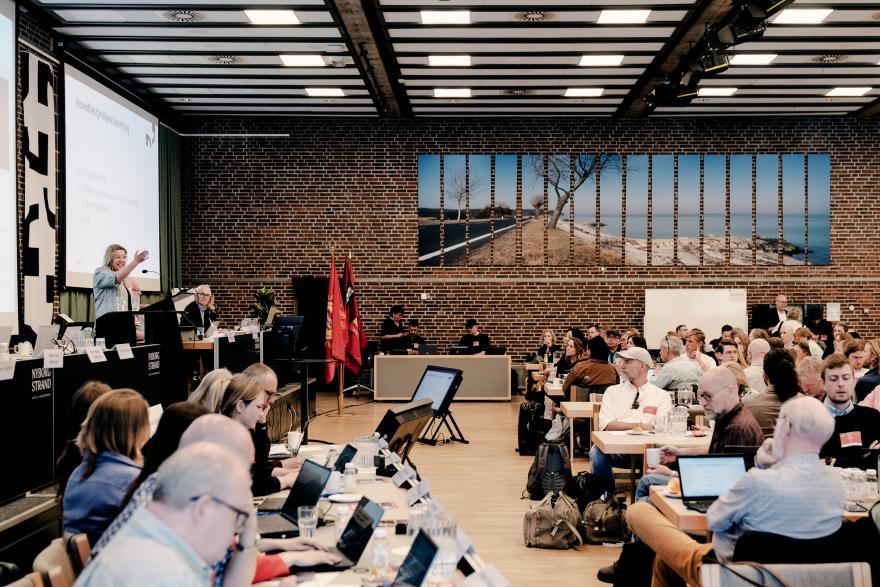
Full text of NUJU President Sergiy Tomilenko’s speech at the Danish Union of Journalists Congress:
Dear Danish friends,
Being here with you today, I feel like I’m among people who really understand and support us, Ukrainians. I am Sergiy Tomilenko, president of the National Union of Journalists of Ukraine. My Union is the biggest and oldest journalists’ organization in a country now facing the worst war in Europe since 1945. We’re not just fighting for ourselves – we’re defending freedom and democracy for all of Europe. We stand for ourselves, and we stand for you too.
We are all shocked by what Trump is doing right now. He has stopped aid to Ukraine and to our civil society and media sector, and says he wants to be friends with Putin…
Before coming here, I talked to Anatoliy Bilonozhko, a newspaper editor from Mykolaiv. “Our office is destroyed—the windows are covered with wooden boards, so we can’t work there,” he said. His team now works from their homes, using their own equipment.
Money is a big problem for local media. At “Mykolaiv News,” which just turned 30 years old, salaries are very low, and many journalists leave for better-paying jobs. The newspaper had to sell its car, and now staff use their personal cars or public transport to deliver papers.
“For three years now, we have no clean water in Mykolaiv,” Anatoliy told me. “Instead of doing our jobs as journalists, we spend hours finding water to drink and carry it home. The salty tap water breaks our pipes and faucets, and we must replace them every year.” Yet despite all these hardships, his team has published every single issue of their newspaper this year.
Since Russia’s full invasion began, at least 117 media workers have been killed. Over 30 journalists are still held captive by Russians, accused of fake crimes. Five of them are women.
Our Union has heard from journalists who escaped Russian captivity about torture and cruel treatment. Young journalist Viktoriya Roshchyna died tortured in Russian detention. Sadly, there is no system to protect these people. Our only hope is to spread awareness and put international pressure on Russia. We stand in solidarity and demand freedom for Iryna Levchenko (a member of our Union of Journalists, who was captured by the Russians in May 2023), Dmytro Khylyuk (a journalist for the UNIAN news agency, who was captured by the Russians in March 2022), Iryna Danylovych, Vladyslav Yesypenko, and dozens and dozens of other Ukrainian journalists who are being held in detention by Russia.
Against this terrible background, something special has emerged—frontline local newspapers. Thirty-two newspapers near the front lines are publishing again thanks to international help organized by our Union.
These frontline newspapers are not about making money. They are about the right to know the truth—information that can save lives. When there’s no electricity or internet, these printed papers bring truth to villages and cities under attack. They tell people how to evacuate, how to get food and medicine, and how to get help from the government.
The editors of these newspapers are amazing people. They stay true to their profession and to Ukraine. They don’t give up on their readers. They have become heroes of journalism.
Anatoliy, who I mentioned earlier, is one such person. There are many like him in Ukraine. Each of them serves thousands of readers who trust these local papers not just for news, but for hope—hope for a better future, hope for peace.
I am proud to stand on the stage of your esteemed Congress and name a few of my colleagues who have revived frontline newspapers. This is important for my colleagues. Anatoliy Zhupyna from Kherson, Oleksiy Pasyuha from the Sumy region, Vasyl Myroshnyk and Kostiantyn Hryhorenko from the Kharkiv region, Tetiana Velyka from the Zaporizhzhia region.
I often visit frontline areas myself. Just a month ago, I went to Orikhiv, a small town just 4 kilometers from the front line. I traveled there with Svitlana Karpenko, who edits the local paper “Trudova Slava,” and we brought the newest issue to readers. We wore protective equipment, the trip itself was dangerous, as the Russians are intensifying drone attacks, especially on civilians. We delivered press along with bread that brave emergency workers were bringing as aid. People’s faces lit up when they got both—bread for the body, news for the mind. Many residents of Orikhiv have been living without electricity in the destroyed city since April 2022.
We are so grateful for Denmark’s help. Your government just approved your 25th aid package worth billions Danish kroner to support Ukraine through 2025-2027. Danish farmers are sharing new farming methods with Ukrainian farmers. And Mykolaiv has become Denmark’s sister city. For almost three years, you’ve helped rebuild buildings, fix power systems, and support businesses in Mykolaiv, one of the first cities hit hard by the Russian army.
I am sincerely grateful to every member of the Danish Union of Journalists, the President and Vice-President of the Union, Tine Johansen, and Allan Secher Boye Thulstrup. Thanks to donations from the Danish Journalists’ Union, we’ve provided emergency help to over 80 journalists who were hurt or faced emergencies. This support has been a lifeline for our colleagues in dangerous areas.
We’ve helped people like Olha Zvonariyova from Zaporizhzha, who was badly injured when Russians fired a second missile at the place she was reporting from. And photographer Olha Kovaliova from Kharkiv, who was hit by shrapnel while working near the front line. And Iryna Dmytrieva, from Dnipro region, whose house was hit by a Russian drone while she and her sons were inside, saved only by a small shelter they built.
Your help from Fansr Journalistforbund also kept our Journalists’ Solidarity Centers open in March and April when UNESCO funding stopped. These centers provide safety equipment, safe places to work, legal help, and emergency grants. With five centers—three in frontline cities and our main office in Kyiv—our team of 22 people helps journalists across Ukraine.
Yes, we share many challenges: equal rights for staff and freelance journalists, social protections, gender equality, fighting online harassment, and dealing with AI in media. But for Ukrainian journalists, our main concern is staying alive. Our biggest problem is safety. Our greatest challenge is the war itself.
Our research, condacted by the National Union of journalists of Ukraine, shows something powerful: 90% of readers trust their local frontline newspapers—much more than any other news source. This shows why supporting local media is key to fighting fake news.
I ask you: keep Ukraine in your stories, in your broadcasts, in your hearts. Your support today makes us stronger tomorrow.
Let’s stay united. Let’s stand together.
Because journalists are important.
As a sign of respect and thanks for the friendship between our unions, I want to give the Danish Union of Journalists a Special Recognition Award from the National Union of Journalists of Ukraine. And also gives your union the flag of Ukraine with signatures of journalists from the frontline regions of Zaporizhzhia and Dnipro, and from Kyiv. My colleagues specially signed this flag on the occasion of your Congress.
Slava Ukraini! Slava Denmark!
Photo by Kristoffer Juel Poulsen

 THE NATIONAL UNION OF
JOURNALISTS OF UKRAINE
THE NATIONAL UNION OF
JOURNALISTS OF UKRAINE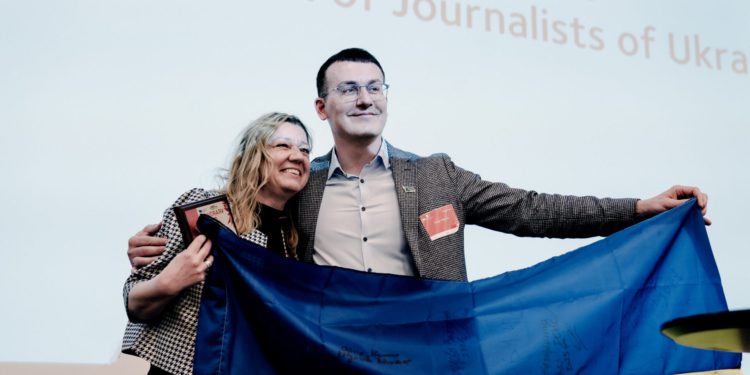
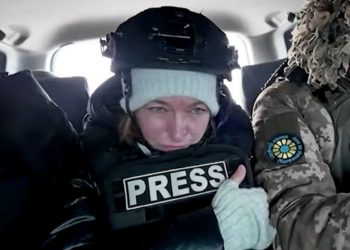
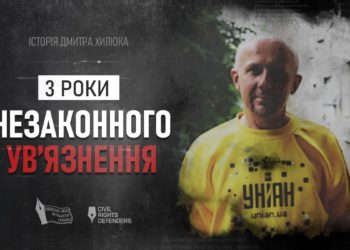
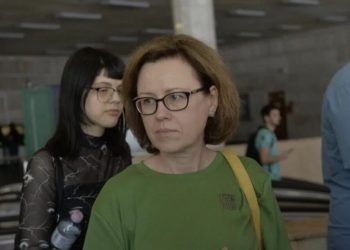













Discussion about this post